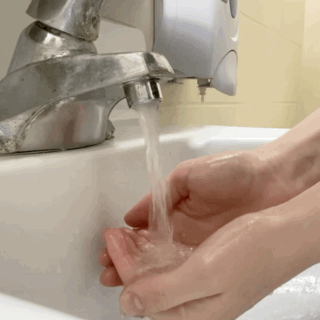We conclude our “Hot Seat” series with the mayor of an Illinois city among the hardest hit economically by the pandemic.
Aurora Mayor Richard Irvin learned the hard way about the threat of COVID-19.
“As a person who contracted it early on in March, and went through terrible symptoms, and the uncertainty of not knowing what would happen, and hearing the news, and seeing that people were dying from this and being hospitalized for weeks on end -- I just want to let people know that this is real,” Irvin said.
As soon as he was in recovery, he held a Facebook Live conversation with Aurora’s police chief who also was diagnosed with the virus. The conversations kept coming—with thousands of views. Guests so far have included local health professionals, finance experts, artists, students, and beyond. Irvin serves as “emcee” making the conversations less like a press conference and more like a talk show.
“I thought it was important to engage people to answer as many questions as possible especially because I was diagnosed early on and dealt with the symptoms of COVID-19.” Irvin said “I thought it was important to tell the story, and to engage and talk to people and let them know that we're all in this together.”
But it’s not all “feel-good” news. There have been more than 3,000 cases in Aurora, including more than 60 deaths. The city is also in an especially vulnerable economic position. The Hollywood Casino has been closed, and the Fox Valley Mall. Then there’s the closures of the outlet mall and the downtown Paramount Theatre. All drew large numbers of people from across the Chicago area.
“I think it's a balance, and a balance that we have no choice but to work out,” Irvin said. “This type of crisis hasn't happened in the world in over 100 years. We have to deal with the best way we can, recognizing that our economy and our social interactions have to continue on you. We don't expect that there will be a vaccine for you know, close to another year, but we can't remain closed for another year.”
He says social media has been one way to talk directly to constituents and ease fears about the impact of the virus.
“The more we talk about it and the more we lay out how we feel, the easier it is to accept what we have to do as a community.”
As for making the tough calls, Irvin says that’s not new territory.
“The reality is-- that is the plight of an elected official,” Irvin said. “If you take 100 people, 60 people are going to like what you're doing and 40 aren't going to like what you're doing. All I can do is try to do the best I can and represent the greater good for the greatest number of people here in the city of Aurora.”
And he says he doesn’t make decisions alone.
“You've probably heard the saying, ‘All politics are local,’” Irvin said. “There's no partisan way to fill a pothole or pick your garbage up or shovel your snow. So I like to talk to other individuals that just want to do the work for our community. And that ends up being other mayors who deal with people one on one.”
He says the biggest personal challenge has been the physical isolation.
“I don't think I'm any different than in many other people who run for political office and deal with constituents. We get our strength from people. I get my energy from people and I've been removed from people except for on a video screen. So it's been a difficult transition for me; I didn't realize how much I needed people in general and needed to be around them and feed off them for my strength and ideas and energy to go forward. It's been hard and it is exhausting, but it’s part of the new norm.”
He is still chatting with people from around the city. The difference now is that a few thousand constituents have a front row seat in his virtual office.








